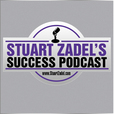
Summary: Dominique Grubisa, Australia’s Top Debt Expert, shares with you (all the way from Thailand) her special P.O.S.T. formula for best practice negotiation. Listen to her succinct video and use her tips to ensure you get the absolute best result from your next property negotiation. Hi, I’m here in Thailand where I am spending my summer holidays and I’ve been out in the market place, I’ve been watching the Thai people negotiate and barter with Westerners and they’re on a massive advantage. They negotiate every single day and they know exactly what they’re doing. And it made me realize as negotiators, as property entrepreneurs, we need to be able to negotiate effectively. 99% of people just can’t do that and I have a body of skills that I’ve learned over the years in LOA as a negotiator that I want to try and impart to you because it’s not all about price. Most people get stuck on price and timing. They have a deal on their radar for maybe a week and they go back and forth on price and then give up. It’s so much more than that and if you are better prepared you will succeed. So how do we become better prepared? Simple acronym, POST, P.O.S.T. P – is for PREPARATION, you must be better prepared than the other side, you must gauge the environment, you must know what you want, you have to do your research and your due diligence and I don’t mean just in your head. Record it – record it in a way that is presentable to the other side, have all your facts, figures, comparable sales. Everything ready, you are prepared. Secondly, O -stands for OBJECTIVE, what is your objective? Not just in the whole negotiation but at each stage, be ready to sit it out, don’t rush it, it could take months, sometimes when there’s several parties to a deal, be prepared for that. Have several on the boil, but never, ever be under the pump for time, which is a massive disadvantage. Okay, so what is your objective at each particular meeting? The first one should be just to gauge your opponent, get information about their personality their style, what they want. Bottom line is basically a feel for them. Information is power, the more information and background you can draw out that first meeting, the better prepared you’ll be. So I would also suggest that the first meeting, you get a feel for them as a person and you build trust and rapport. That’s all your objective should be then. So what comes next is S – stands for STRATEGY. What is your strategy for this particular deal? Are they a dominant personality? Are you going to match them and be pig headed like them and be like them? That’s fine. Are they scared? Are they afraid? Are you going to take a make up more team approach? Match your personality and style to theirs. Your strategy could be anything from good cop-bad cop. If there are two of you, my wife hates this property, I like it, how can I convince my wife? Is there any room for movement? Then, that’s a good strategy to have. Finally, T-stands for TACTICS. Tactics means, when to adopt a particular strategy. It may be that if the other side is pushed for time, as I said, massive disadvantage. You may take your time and go slower if the other side is set on a particular dollar value; your tactic might be then to say okay, well what if we did it in a different way, and what if we negotiate in another aspect? If we put that to one side, can we sort out one, two, three, four or five? Most people will do less work in a negotiation. If you are better prepared and do their job for them, if you control the negotiation, you will win every time. Control it with your documents. Okay, we’ve got all that together, let me draw it out for you. Hey, when we’re talking about price, look at all this research I’ve done. People will appreciate the less work they have to do, and people will stick to a negotiation the more time they invested in it. Little tactics that can take you a long way, if you[...]
